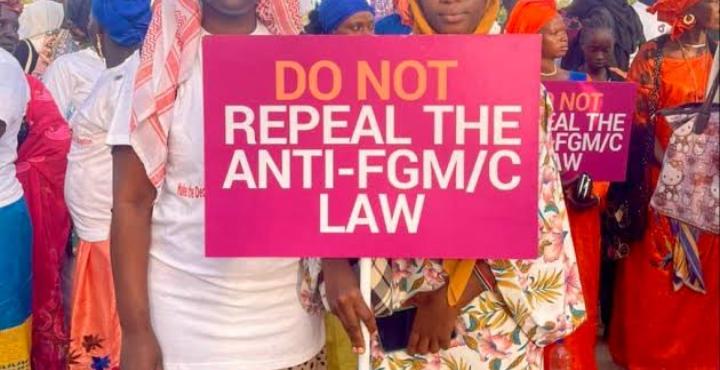
FGM ban in the Gambia. A decision about whether to lift the ban on female genital mutilation (FGM) in the Gambia has been postponed for three months due to calls from MPs for more consultation.
FGM has been illegal in the country for eight years, with a punishment of up to three years’ imprisonment. Hundreds of people protested outside parliament, mostly in favor of lifting the ban, according to Agence France-Presse.
Statistics show that three-quarters of women aged 15 to 49 in the Gambia have undergone FGM, and campaigners against the practice are concerned that the proposed bill could reverse years of progress.
Read also: German Police Accused of Brutal Mistreatment: Gambian Migrant Gagged and Deported
Jaha Dukureh, founder of the anti-FGM group Safe Hands for Girls, expressed disappointment, saying, “It was heartbreaking to see men dismissing our experiences and reducing our pain to Western influence.”
The bill has been referred to a parliamentary committee, which means it will be reviewed for at least three months before returning to parliament for further discussion and a vote.
MP Almameh Gibba, who introduced the bill, argued that lifting the ban would preserve religious traditions and cultural values. Critics of the ban often argue that it goes against Islamic principles, while anti-FGM campaigners stress that the practice is not supported by the Qur’an.
Janet Ramatoulie Sallah-Njie, the special rapporteur on women’s rights in Africa for the African Commission on Human and Peoples’ Rights, expressed concern that overturning the FGM law could pave the way for changes to laws on early and forced marriage.
Read also: From Integration to Naturalization: costs and requirements for German Citizenship
“We must rely on civil society to advocate strongly,” said Sallah-Njie, who is from the Gambia.
